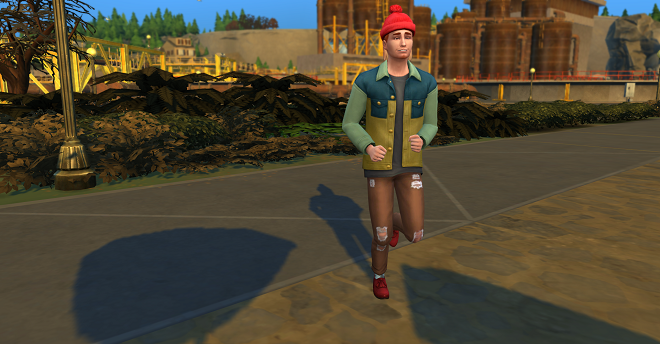
The community planting project that Case is in charge of takes up so much of his time that a few days go by before he sees Ira again. It’s not that he forgets about her–she stays safely tucked into that cozy drawer in his mind where he keeps his favorite people. It’s just that he’s focused, entirely, on the project. They’d ordered native plants–sages, grasses, salvias, composites, and so many conifers. But a local nursery offered up several ornamental trees, and it’s fallen to Case to figure out where to place them.
He’s read that if ornamental non-native trees and plants are interspersed with natives, the ecosystem is sometimes even more robust, even more supportive of biodiversity, than if it were natives only. This happens in well-planned gardens. He finds it hard to believe on a scale as large as he’s in charge of. But it could be. So he’s been riding up and down the neighborhood planting areas, scouting out places where these new additions would be surrounded with a sturdy understory of native shrubs, flowers, ferns, and grasses.
Returning from one of these scouting trips, he finds Ira waiting for him at the edge of his lot. She breaks into a smile when she sees him.

“Have you been waiting?” he asks.
“Well, yeah.”
“For me?”
“Um, yes.”
“Oh. Well, you don’t have to wait. You’re welcome here any time. Here,” he says, handing her his spare house key, “now you’ve got your own key, so you can just come on over whenever. Make yourself at home.”
She does. She finds a book to read and sits on the cooler, reading about the theory of light, while Case pulls out his tablet and marks the locations he’s found for the flowering cherry, the Japanese maple, and the daffodil and tulip bulbs.

By the time he puts his tablet away, he looks inside for Ira. The book is open on the table, but she’s left.
Oh well. She’s got her own key now. She’ll be back.
Case strolls down to the boardwalk to check on the grasses that were planted there last week. Trash still litters the place. He and some of the planting crew will pick it all up again tomorrow. Maybe this time it will stay picked up.
He wonders if it’s odd to find to friends, Moira and Aadhya, chatting with each other on the bench, at the same time that he happens to walk by.
Moira doesn’t seem to think it’s odd at all. She greets him as if it’s perfectly normal for him to be there. Maybe he could ask her. He gives it a try.
“Of course it’s not odd!” she laughs. “I mean, you live right down the way, and you work in the neighborhood. I’d say it’s normal to run into you!”
He knows why he’s here–that’s not the question. But he doesn’t ask what she’s doing here. It’s nice, though. Her smile makes sense, like she’s glad to see him and interested in talking with him, and when she starts talking about her garden and the new shipment of bulbs that just arrived, he’s interested in what she has to say, too. It’s easy to listen to Moira. Everything about her makes sense.
He can’t figure out Aadhya, though. How come she’s not joining into the conversation. Why is she sort of staring at him? And is that even a smile? Her eyes don’t look happy, and her hands look nervous. In the past, when he’s asked someone how they’re feeling when they look like that, they’ve gotten mad at him–or they thought he was rude. So he doesn’t ask.
He just stores it away–a piece of evidence. Maybe as he gets to know Aadhya better she’ll start making as much sense to him as Moira and Ira do. Hmm. It’s odd, he thinks, that the two people who make sense to him have names with I R A as the final three letters. And if Aadhya’s name were Aadhira, would she, too make sense?

Eventually, Moira and Aadhya have to head out. He doesn’t think he kept them too long. They were the ones talking, after all, well, Moira was. Aadhya just sat there with the sad-eyes-sort-of-smile-nervous-hands. He reviews the interaction see if he did anything to detain them, but no, he just listened. It was a nice conversation, too. It’s easy to process garden-talk.
The sun sets and the cool air rises from bay. It smells clean now. When it blows over the grasses, he can smell sweet oat mixed with heavy soil.
“The neighborhood’s starting to look good,” Faye says. “I guess we have you to thank for that.”

The next morning, jogging to the garden center, he comes upon a stretch of the path where there is no trash. The plantings were completed here last month, and for the last three weeks, he hasn’t found a scrap of litter.

